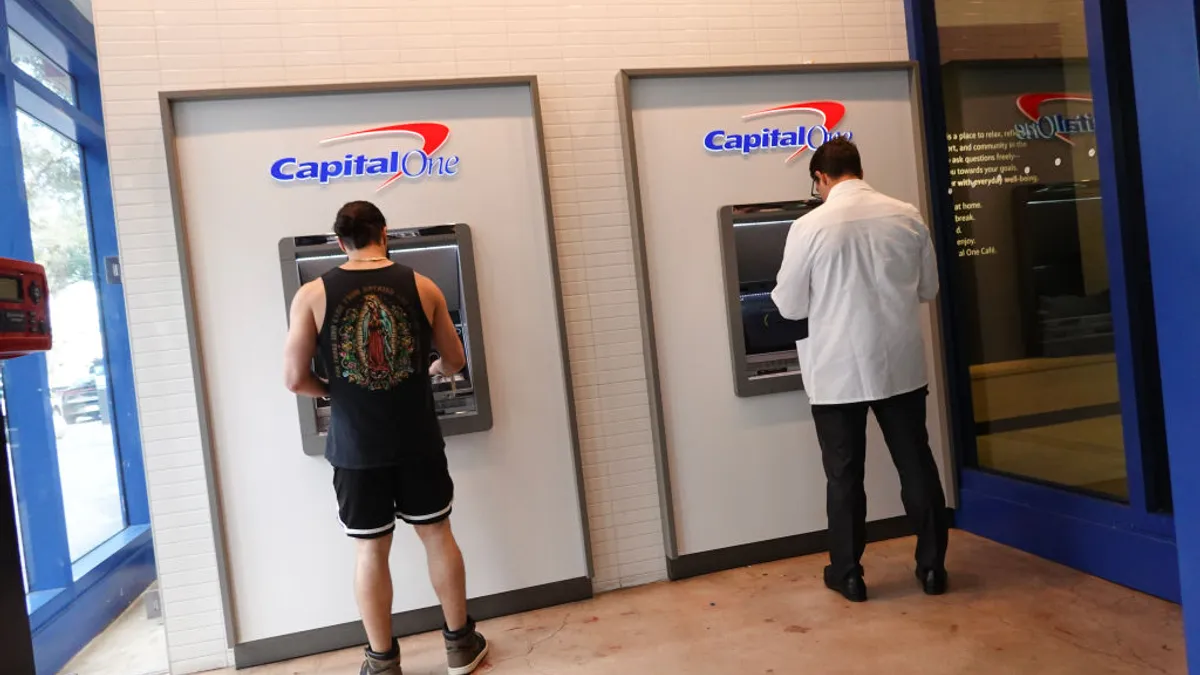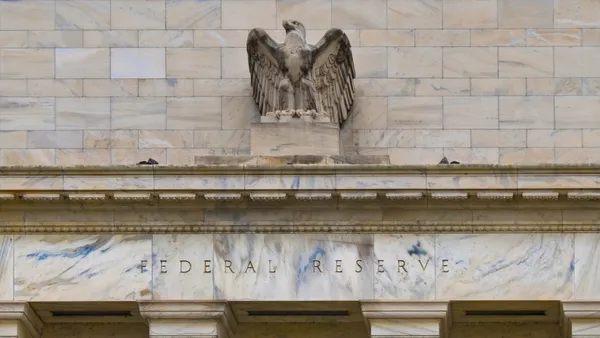Dive Brief:
- Fifth Third CEO Tim Spence expressed concern last week that regulatory changes are pushing more banking activity outside the banking system.
- “Every loan category, for the first time ever last year, was at least 50% nonbank. The mortgage industry is north of 80%. I just think that literally doesn’t make sense,” Spence said Wednesday at a Bernstein conference. “If the folks who are the policymakers in Washington believe that people are better off with unregulated financial services, then just de-regulate the banks and let’s go.”
- Cincinnati-based Fifth Third is in “pretty good shape” when it comes to pending regulatory changes related to liquidity, long-term debt and capital requirements, Spence said. The bank has been carrying elevated liquidity — around $20 billion — compared with $3 billion before the COVID-19 pandemic, Spence said. The bank believes about $10 billion is the right level for the long term, he added.
Dive Insight:
Recent regulator comments on the proposal to strengthen capital requirements suggest more tailoring is likely, Spence noted. “That will only be favorable for banks like us, that did the hard work last year to achieve what we thought was the right capital ratio under the prior proposals, so we have some flexibility there,” he said. The bank had a common equity tier 1 capital ratio of 10.4% in the first quarter.
But as regulatory reform efforts pile up in the banking industry, Spence said he feels “very strongly” that nonbanks should be designated as systemically important, subjecting them to the same regulation as banks, or banks should be de-regulated, allowing the industry to “go back to a world where we’ve got creative destruction.”
“What I think we’ve done, unfortunately, is to shift some of the risk into segments of the economy that have less transparency, that tend to be more pro-cyclical,” Spence said Wednesday, “and that’s not good for the stability of the system. Forget the banking system for a moment; just the stability of the U.S. economy, and our ability to deal with what’s likely to be more volatility in the future, given the fiscal imbalances that we’ve got and some of the geopolitical dynamics around the world.”
Incidentally, a Financial Stability Oversight Council report published last month on nonbank mortgage firms determined such companies pose unique risks that can affect financial stability because their targeted business model leaves them more vulnerable to fluctuations in housing prices and interest rates, according to a Bloomberg report.
Nonbank mortgage companies have grown their market share in the years following the Great Recession, when large banks pulled back from such lending.
The FSOC report recommended Congress create an industry-financed fund that offers a liquidity lifeline to failing companies. Additionally, the FSOC suggested that state regulators should force large nonbank mortgage companies to engage in resolution planning and other actions, according to Bloomberg.
Last November, the FSOC finalized a rule that would allow regulators to increase oversight of those companies and other nonbanks such as asset managers and hedge funds, and label them as systemically important financial institutions.











